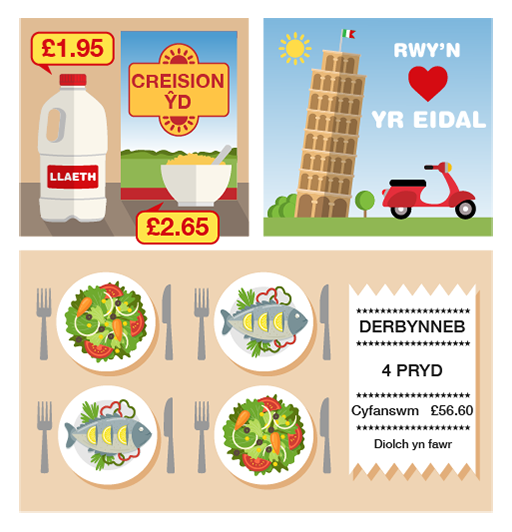4.4 Decimal problems
Now try the following activity.
Activity 33: Using decimals
Solve these problems involving decimal numbers without using a calculator.
- You buy a box of corn flakes for £2.65 and a bottle of milk for £1.98.
- a.What is the total cost of these items?
- b.You pay for them with a £5 note. How much change should you get?
- You go on holiday to Italy. The rate of exchange is £1 = €1.4. How many euros do you get for £8?
- You go out for a meal with three friends, and the total cost of the meal is £56.60. You decide to split the bill equally. How much does each of you pay?
- Convert 6.25 m to cm. (Remember that 100 cm = 1 m.)
Answer
- The answers are as follows:
a.Add the cost of the two items:

(Keep the decimal points in line.)
The total cost of the items is £4.63.
b.Take away the total cost from £5:

You should get 37p change from £5. You may have used a different method to work this out.
-
Multiply the exchange rate in euros (€1.4) by the amount in pounds (£8):

So £8 = €11.20. You may have used a different method to work this out.
-
Divide the total cost (£56.60) by the number of people (4):

You would each pay £14.15.
-
To convert 6.25 m into cm, you need to multiply the amount by 100.
- 6.25 × 100 = 625
So the answer is 625 cm.
Summary
In this section you have learned about how:
- the value of a digit depends on its position in a decimal number
- to approximate answers to calculations involving decimal numbers
- to add, subtract, multiply and divide using decimal numbers.
This will help when working with money and measurements.

